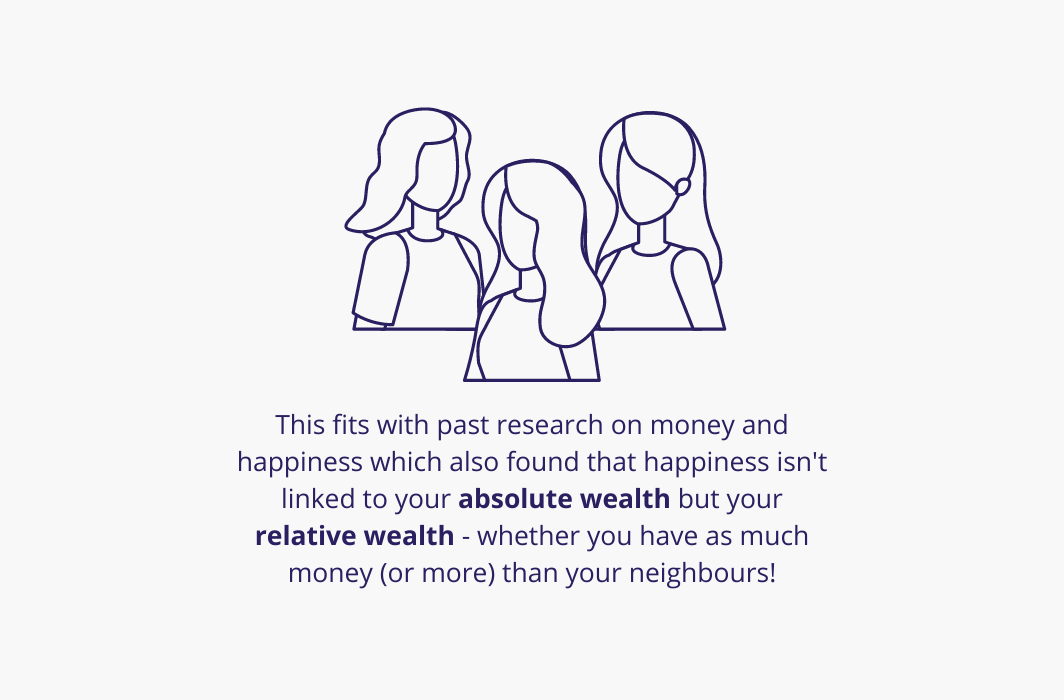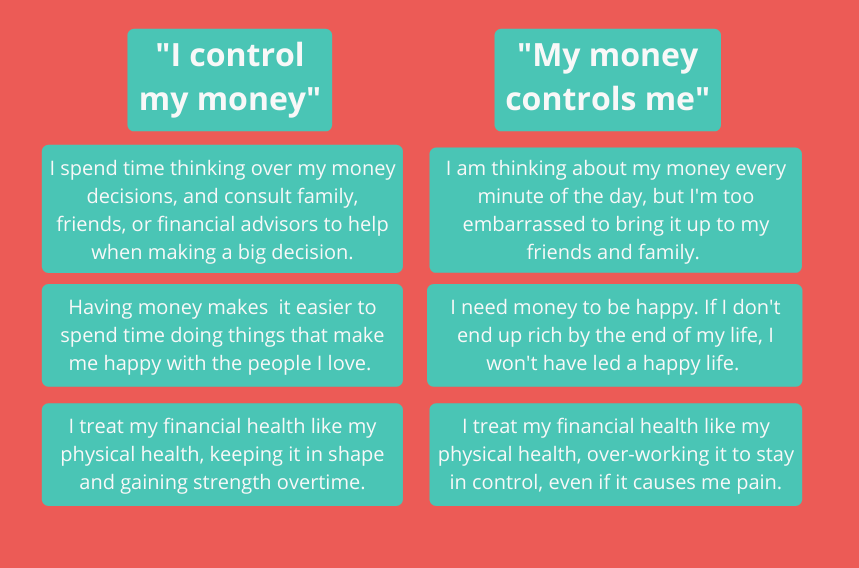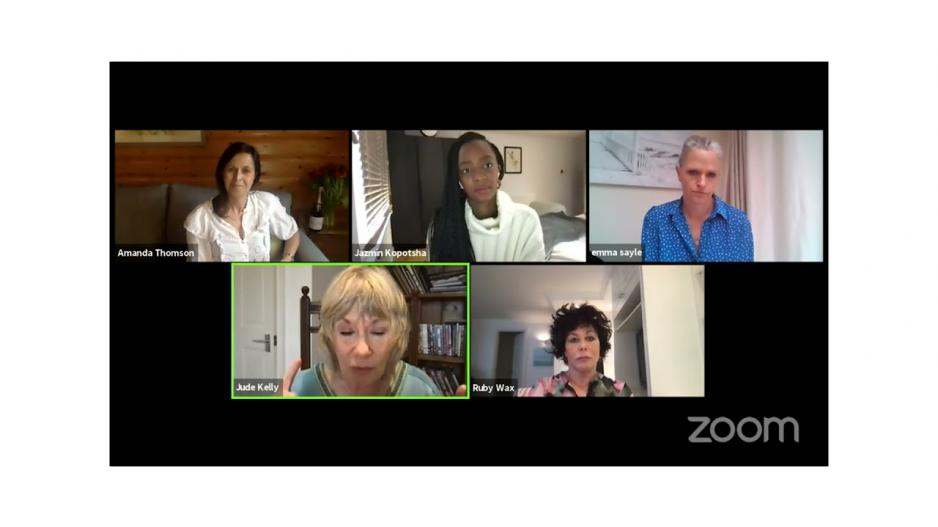Historically, money was no more than a tool to help people achieve their 'real life' goals, like buying a home or raising a family. Even today, not everyone agrees that accumulating money for its own sake is their automatic objective.
It helps to bear in mind that the pursuit of profit is rooted in the evolution of our capitalist economies.
In this lesson you will learn:
- That money indeed provides happiness.
- The crucial role your personal context & control plays.
Listen to this article

The key to happiness?
Most of us have heard that money can’t buy happiness many times throughout our lives. You might find it hard to agree when you see bills piling up and you can’t commit to having fun or planning things like holidays or birthdays while your bank account lies empty.
So it’s good to know that a landmark 2010 Princeton University study showed that money does indeed influence our happiness — although only up to a very specific point. The study covered 450,000 Americans polled in 2008 and 2009. It found that their annual income was closely connected to their emotional wellbeing.
While a lack of money didn’t seem to cause unhappiness in itself, that issue made people feel worse about other problems. But having more money only increased happiness up to an income of about $75,000. For people who earn more than this, their individual temperaments and life circumstances affected their emotional wellbeing far more than money.
This makes sense: people earning over a certain threshold will have more cash available to buy the fun things and experiences they enjoy, like a favourite meal, or going out with friends.
Happiness vs. satisfaction:
An updated study in 2018 by Purdue University pegged the global average for the “magic” income figure at around $95,000. It should be noted that the study was talking about individual income – the figure could well be higher for families.
The study was based on data from the Gallup World Poll, which is a representative survey sample of more than 1.7 million individuals from 164 countries. The estimates were based on purchasing power and questions on life satisfaction and wellbeing.
It’s been debated at what point money no longer changes your level of wellbeing. We found that the ideal income point is $95,000 for life evaluation and $60,000 to $75,000 for emotional wellbeing.
The different income figures relate to different types of responses – which could be described as happiness compared to satisfaction.
Emotional wellbeing is about our day-to-day emotions, such as feeling happy and excited, or sad and angry. In contrast, life evaluation is more about making a rational evaluation – such as an overall assessment of your success. This could explain the higher figure, as it could be influenced by higher goals and comparisons to others.

There was substantial variation across world regions, with satiation occurring later in wealthier regions for life satisfaction...
This could be because evaluations tend to be more influenced by the standards by which individuals compare themselves to other people.
What's your opinion?
$95,000 is supposedly the 'magic' income figure on a global average - above this, money no longer adds to happiness. Do you agree with this?
Self-knowledge could be the secret:
Research from Cambridge University has found that people who spend more on purchases that fit their personalities are the happiest.
The study, published in the journal Psychological Science, examined how 625 real people spent their money, following around 77,000 UK bank transactions over six months. It matched 59 spending categories to the Big Five personality traits often used in psychological research:
- Openness to experience (unconventional versus traditional)
- Conscientiousness (goal-oriented vs impulsive)
- Extraversion (extrovert vs introvert)
- Agreeableness (altruism vs self-interest)
- Neuroticism (emotionally stable vs instable)
The results could mean that how we spend our money could be as important to our happiness as where we work, where we live, or even who we spend time with.
Who (or what) is in control
The key is to take control and use your money in ways that express your personality and goals.
If you want to make sure that your money helps to make you happy, you have to make the decision not to let it define you or rule your life. You need to remind yourself that money is simply a tool that you can control and use to help express yourself.

How about considering these points about money and happiness to start resetting your money mindset:
- What are the things that really matter to me? Where does money come in?
- When was I most happy? What made this a happy time – did money play a part?
How does money make YOU feel?
During Money Rally: Money Mindset (2021), Jude Kelly shared that she has often been ashamed of doing things to make money. Have a listen to the following clip, and think back to the last time you felt proud of earning money - because why shouldn't you be!
Key takeaways
So, does money bring happiness? While. a certain amount of money does make you happy, it's also very much dependent on how you use it. In other words, considering money as a tool and appropriately embedding earning and spending within your personal situation is most likely to yield the highest happiness and satisfaction.
What comes next?
This nicely leads us into our next module What are the hidden meanings of your money?, where we will be looking at some of the unconscious biases many of us have about money.
Discover more
-
What are the hidden meanings of your money?
Let's examine your unquestioned assumptions about money and its role in your life. It’s very likely that “your” personal beliefs a... -
5 bad money habits & how to destroy them
They might not seem comparable at first glance, but there are definite similarities between developing your physical fitness and i...


